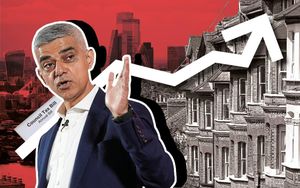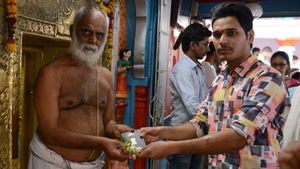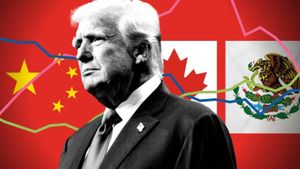The intense campaigning for the Delhi Assembly Elections 2025 came to a dramatic close on Monday evening, setting the stage for one of the most anticipated electoral showdowns. With the polls scheduled for February 5 and the results to be announced on February 8, the political atmosphere is charged with energy and suspense.
The ruling Aam Aadmi Party (AAP) is gearing up to defend its territory, seeking to secure a historic third consecutive term. Chief Minister Arvind Kejriwal, confident about his party's prospects, has boldly claimed, "We are winning 55 seats but if my mothers and sisters extend their support, we may reach 60." This assertion reflects the AAP's focus on mobilizing female voters, who they believe play a pivotal role in their political strategy.
On the other hand, the Bharatiya Janata Party (BJP), which has been out of power for nearly three decades, is aiming for what could be its monumental comeback. Union Home Minister Amit Shah has echoed the urgency of this electoral battle, remarking, "Kejriwal will not deliver the development he promises," as he rallied support with significant backing from high-ranking BJP leaders. The BJP's campaign is laced with accusations of AAP's governance failures and promises of effective management if they reclaim power.
Meanwhile, the Congress party, which previously dominated Delhi politics, is working tirelessly to regain its footing after disappointing performances in the last two elections. According to Congress leader Ajay Maken, "Surprising results will emerge; we are positioned to win more seats than AAP." This assertion hints at their strategy to appeal to voters disillusioned with both AAP and BJP.
The final days of campaigning have been characterized by various public events, including rallies and roadshows across the city, with each party attempting to outdo the others with their messaging. AAP organized numerous last-minute events where they touted their achievements, particularly in healthcare and education, attempting to reinforce their development narrative.
Conversely, the BJP's campaign included 22 roadshows, challenging AAP's record and promoting what they call their "double engine" government approach, referring to both local and central governance. The Congress, trying to overshadow the competition, also ramped up its activities to remind voters of its previous tenure and attempted to establish itself as the viable alternative.
The campaigning was not without its controversies, with sharp criticisms exchanged between the parties. The AAP accused the Election Commission of bias, alleging collusion with the BJP, and raised issues of corruption within the BJP government. Political jibes reached new heights, with AAP branding the BJP as the "Bharatiya Jhootha Party" (Indian Liar Party), and Prime Minister Modi calling AAP "AAP-Daa" (disaster).
Key issues permeated campaign discussions included governance failures, pollution, joblessness, and the infamous liquor scam, which became fodder for attacking one another's integrity. Each party launched significant welfare promises, including monthly financial assistance for women, healthcare provisions, and even subsidies for cooking gas and electricity.
According to reports from the Delhi Chief Electoral Officer, 1.56 crore voters will participate across 13,766 polling stations, which marks the electoral significance of this assembly election. Among those eligible to vote, 83.76 lakh are men, 72.36 lakh are women, and 1,267 are third-gender voters, reflecting the city's diverse demographics. To cater to diverse needs, 733 polling stations have been made accessible for persons with disabilities, emphasizing the commitment to inclusivity.
Security measures are heightened, with over 30,000 police personnel and 220 paramilitary companies deployed to maintain law and order during the elections. Such stringent arrangements aim to secure the polling process, especially considering allegations of potential corruption and manipulation of votes raised by multiple parties.
The spotlight now turns to voter turnout, with previous trends showing declining participation rates over recent elections. The AAP previously dominated, winning 62 seats in the 2020 elections, and hopes to maintain this lead. The BJP is eager for change, fostering sentiments of dissatisfaction among voters with the status quo.
With the mandatory silence period now underway, the parties have ceased public campaigning, leaving the decision to the voters. The results on February 8 will not only determine the future of the government but also reflect the public's sentiment toward governance over the past several years. Will AAP's policies resonate enough for them to maintain power, or will the BJP rise again? Or perhaps, will Congress surprise all and reclaim relevant support? The answers await as the counting begins, promising to shape the political narrative of Delhi for years to come.



